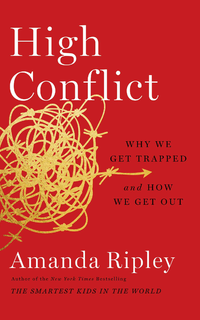Mentions
- Post
Amanda Ripley: Humiliation poses an existential threat that jeopardizes the deepest part of ourselves, our sense that we matter, that we are worth something. It is "the enforced lowering of a person or group," Lindner writes, “a process of subjugation that damages or strips away their pride, honor and dignity."

- Post
“High conflict is extremely flammable. It can easily tip into violence, which leads the opposition to respond with more violence, in an ever-escalating spiral of harm. Very quickly, the most helpful people flee the scene, and the extremists take over.”

- Post
“Wishing your opponent will finally see the light is a fool's errand. It will only lead to heartbreak. Counting up the other side's wrongs is a hobby that can last a lifetime. Obsessing over the next election is a delay tactic. Telling people to reject hate and choose love will not work. Because people swept up in high conflict do not think of themselves as full of hate, even if they are. They think of themselves as right.”

- Post
“It's about the stagnation. In healthy conflict, there is movement. Questions get asked. Curiosity exists. There can be yelling, too. But healthy conflict leads somewhere. It feels more interesting to get to the other side than to stay in it. In high conflict, the conflict is the destination. There's nowhere else to go.”

- Post
“Because conflict, once it escalates past a certain point, operates just like the La Brea Tar Pits. It draws us in, appealing to all kinds of normal and understandable needs and desires. But once we enter, we find we can't get out. The more we flail about, braying for help, the worse the situation gets. More and more of us get pulled into the muck, without even realizing how much worse we are making our own lives.”
